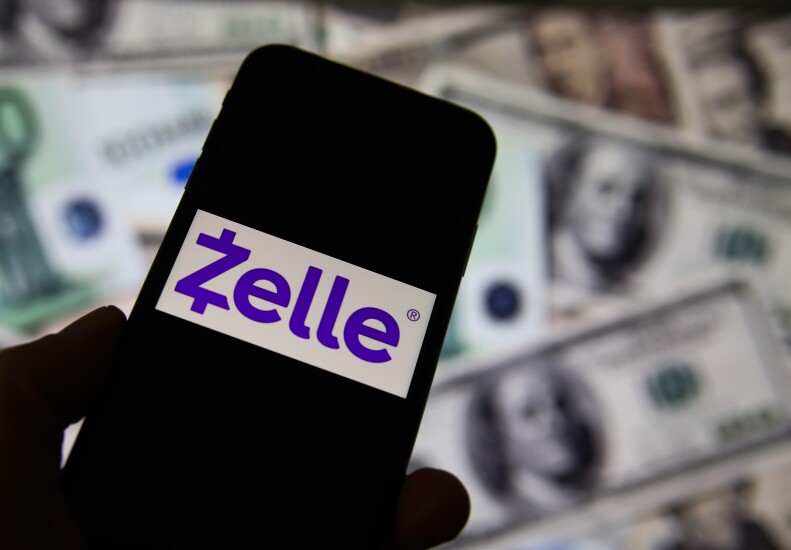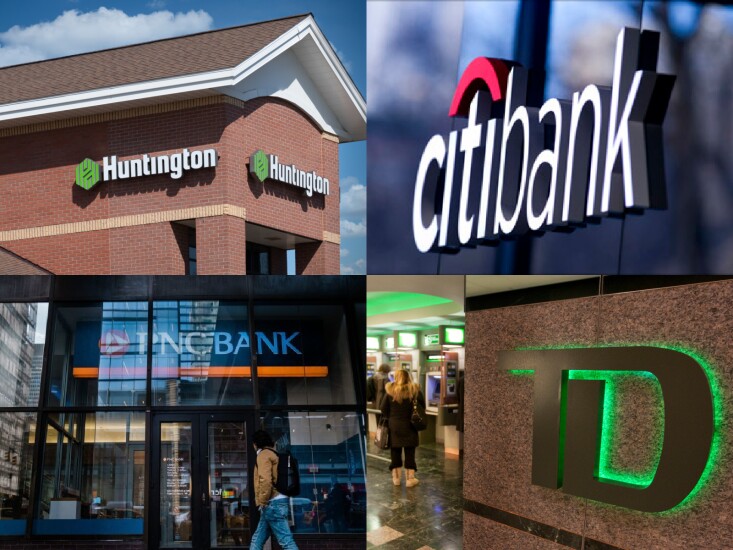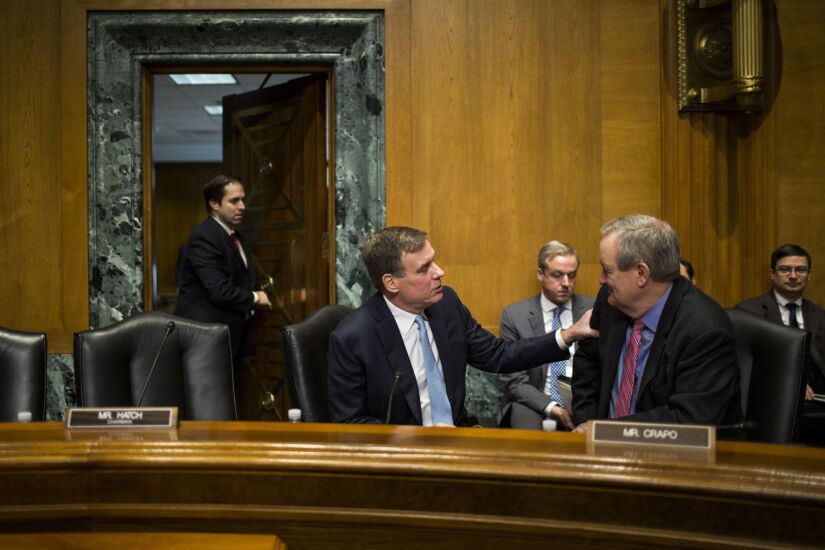In this month's roundup of American Banker's favorite stories: Small and midsize businesses are growing increasingly frustrated with the quality of service offered by their banks, many of the top commercial banks continue reforming practices for nonsufficient-funds fees, information technology leaders at many of the largest institutions eye a passwordless future and more.

A showdown is coming over who is liable for P2P payments fraud
Financial institutions claim they cannot be held liable when a consumer incorrectly sends an electronic payment to the wrong person or gets tricked by a criminal and authorizes a payment that turns out to be a scam or fraud.
Banks and credit unions are likely to sue the bureau if it tries to assign broad liability for fraudulent payments authorized by consumers. Some expect the CFPB will need to issue a rulemaking if it tries to mandate that consumers get repaid for fraud.

The companies making 2022 a busy year for B2B payments tech
But the digital wave of the past two years is boosting demand for consumer-style digitization in business payments, as is economic pressure to use digital processing as a means to more closely manage cash positions.
The tech trend and the sheer size of the business payments market are providing opportunities that are too good for payment companies to pass up.

Why businesses are growing frustrated with the service at their bank
Among business clients that recently switched banks, 44% said that a primary reason was dissatisfaction with an employee assigned to their accounts, according to a survey conducted in May and June by Coalition Greenwich, a benchmarking provider that is part of S&P Global. That figure was up from 40% in September 2020 and from 43% in January 2022.
Another cause for concern within the industry: Some 26% of the firms that switched to a new bank pointed to the previous bank's lack of knowledge about their business as a primary reason — up from 17% less than two years ago.

The rapid demise of NSF fees
Today nonsufficient-funds fees, which are also sometimes called returned-item fees, are largely a thing of the past among the top 20 banks. Thirteen of them have ditched NSF fees as part of broader overdraft reform and four more are scheduled to do the same by the end of this year, according to an American Banker analysis of the banks' policies around consumer NSF fees.

Community banks find right fit with smaller core providers
On the Louisville, Georgia, community bank's shortlist are the three legacy providers that have owned the core market for years — FIS, Fiserv and Jack Henry — as well as a lesser-known company based in Little Rock, Arkansas: Smiley Technologies.
"One reason we chose to include them was to see what a smaller core would offer," said Kim Kirk, chief operations officer at Queensborough.

Big tech is building a passwordless future. Banks want to join in.
As the name suggests, passwordless authentication involves logging a user into a system without using a password. That can involve numerous alternative methods, from using biometrics to a USB key or an app on a trusted device.
Just how widespread is the belief that passwords need to go? According to a recent survey, 89% of IT security leaders at financial services firms believe passwordless authentication ensures the highest level of authentication security — better than passwords and multifactor authentication.

Where credit unions are beating banks in customer experience
"Of course, they had a car loan with someone else. Refinancing it with us put an additional $400 a month in their pocket. What can you do with $400? I mean, think about that," Bolivar said. The member's mother heard about it, and the buzz built from there.
"That in and of itself spread the word that we've got something to offer from a product standpoint," Bolivar said.

CDFIs are starting to flex their post-pandemic clout
Now, as the industry matures into a
Community development financial institutions — better known as CDFIs — are a set of Treasury Department-certified lenders designed to do a certain amount of business in underserved communities across the U.S., often in the form of small business and affordable housing loans. They include banks, credit unions, loan funds and venture capital firms.

How badly was Bread burned by its online credit card payment glitch?
The outage in late June and early July prevented some customers from making on-time payments for their credit card bills with many of the 130-plus retailers Bread serves through its Comenity Bank subsidiary. The issue sent inflation-stressed users across the U.S. to register complaints on social media and with regulators.
Many Bread customers have documented their frustrations on

FDIC promises more scrutiny of banks' commercial real estate loans
The agency said that its examiners will put particular attention on testing newer loans, as well as loans within subsectors and geographic areas that are experiencing stress, and those that are vulnerable because borrowers are paying higher interest rates.
In explaining the sharper focus, the FDIC pointed to rising interest rates, the effects of inflation and supply-chain problems, as well as pandemic-related changes in the use of commercial real estate.





